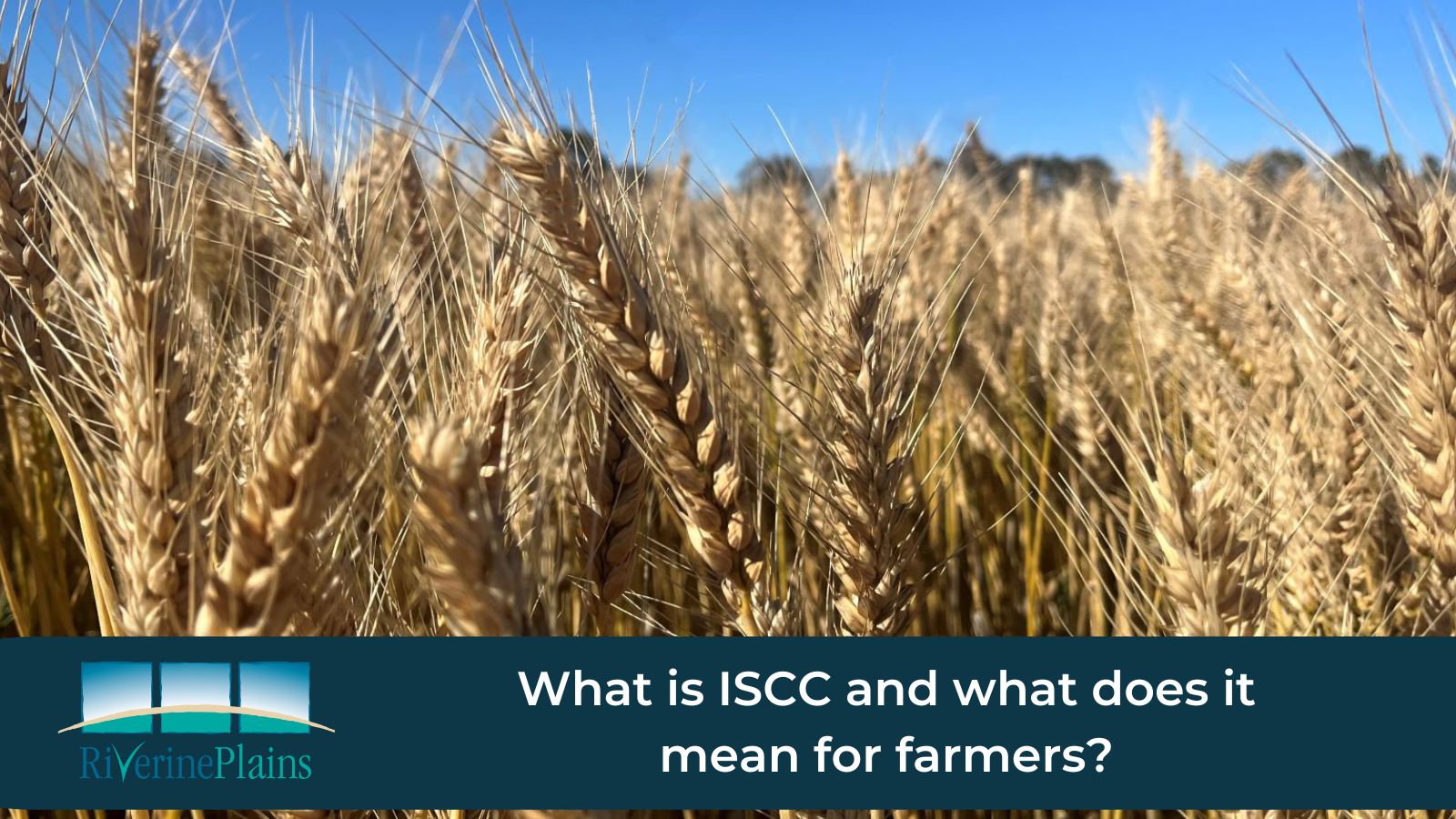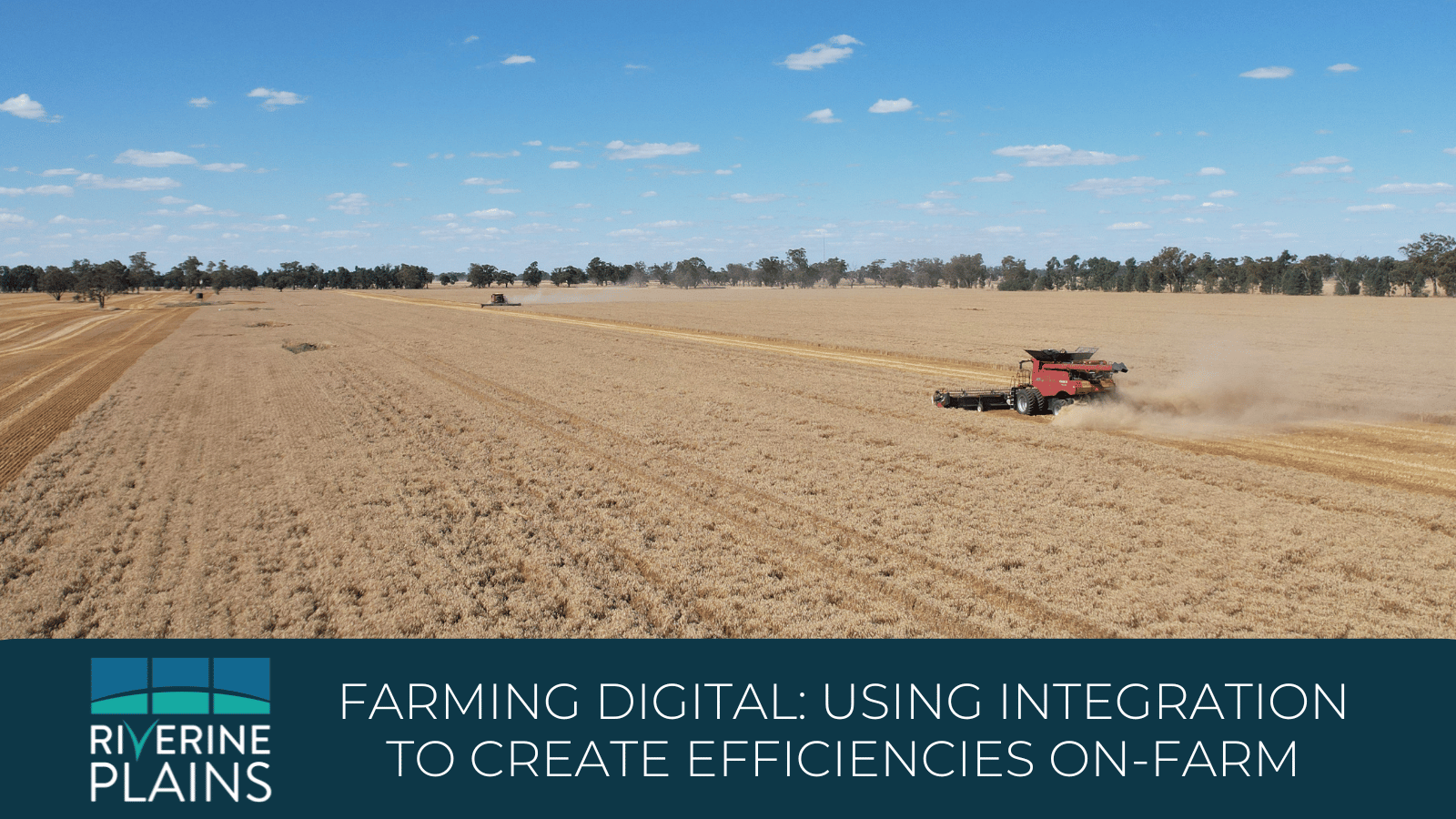What is ISCC and what does it mean for farmers?

Key messages
- The International Sustainability and Carbon Certification (ISCC) is a global certification system that verifies sustainability principles for biobased food, feed and renewables.
- ISCC certification is voluntary, however, growers can gain export advantages and access premium prices.
- Participating farmers can be audited, so it’s important to be able to produce documentation that supports your declaration if required.
Riverine Plains has talked quite a bit recently about economic, sustainability and governance (ESG) issues. So, how does International Sustainability and Carbon Certification (ISCC) fit in with the overall focus on sustainability and what do farmers need to be aware of when it comes to this type of certification?
The background - what exactly is ISCC?
Increasing deforestation, diminishing biodiversity and pollution have all highlighted the need to ensure the extraction of raw materials around the world is sustainable and complies with regulation.
Plant-based producers are under increasing pressure from customers and consumers, with expanding demand for certified and sustainably sourced products. As a result, end-user markets are increasingly seeking assurances that agricultural produce is being grown sustainably.
The International Sustainability and Carbon Certification (ISCC) is an independent, multi-stakeholder initiative and certification system which supports sustainable, traceable and deforestation-free supply chains. ISCC is aimed at reducing greenhouse gas emissions, using land sustainably, protecting natural biospheres and social sustainability.
The first major market to enforce sustainability requirements was the European Union (EU) market, where it was applied to bioenergy feedstocks, such as canola (oil and meal). A significant amount of Australian canola is exported to Europe for use in biofuels production, and for over a decade all Australian growers and parts of the supply chain have had to be certified under the ISCC-EU scheme if their canola is exported to Europe.
While the program was developed initially for oilseeds, ISCC certification has since broadened to include crops such as barley, oats, wheat, triticale, chickpeas, faba beans lentils and sorghum.
How do you become ISCC accredited?
All players along a supply chain, from primary producers on farms and plantations to processors and traders, can be certified under the ISCC program, providing they have an effective system in place to track the certified raw materials.
In Australia, the Sustainable Grain Australia program (SGA) has been developed to standardise the supply of certified sustainable grain to the fuel, food and feed markets. SGA is integrated with the National Grower Register, which makes it easy for growers to register and complete the necessary self-declarations.
The ISCC is voluntary, however, growers can gain export advantages and access premium prices by participating. Currently, ISCC-EU canola attracts a $10 per tonne premium over conventional, non-certified canola. Increasingly, brewers and other food processing companies are also looking at using ISCC accredited grains, creating alternative markets and possible premium opportunities for farmers.
What do farmers need to do to stay compliant?
For a raw material to be accredited, the ISCC system requires compliance with the following six principles:
- protecting biodiverse land and carbon-rich environments
- adherence to good agricultural practices that protect soil, water, and air
- safe working conditions
- complying with human, labour, and land rights
- complying with law and international treaties
- good business management and continuous improvement
Growers who participate in ISCC accreditation need to demonstrate they have sustainably produced the crop in accordance with these requirements.
Participants must be prepared to be audited and be able to produce documents which show their compliance. This may include soil tests results, fertiliser, fuel, herbicide, insecticide, and fungicide purchases, as well as evidence of how chemicals and fertilisers are acquired, stored, applied and disposed of and how occupational health and safety is addressed.
The ISCC-EU isn’t just a tick and forget document, so it’s important that farmers are really aware of their obligations and responsibilities when participating. Growers should re-familiarise themselves with the requirements of ISCC and be satisfied that their farm is compliant by completing the self-assessment checklist.
For more information on responsibilities for growers participating see the following link: http://www.australianoilseeds.com/iscc_certification/grower_requirements
Further resources and reading:


